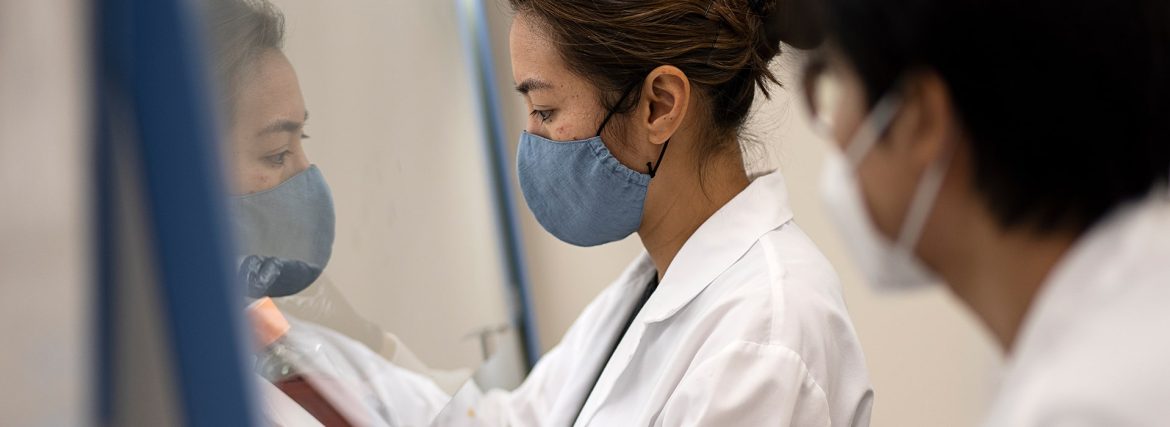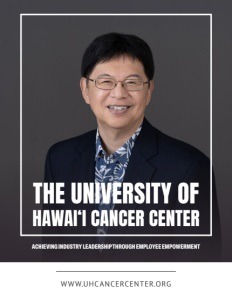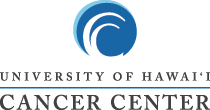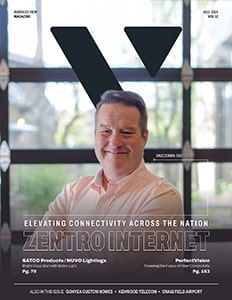A Beacon of Hope in the Pacific
Pioneering Research and Culturally Attuned Care for Diverse Populations
In a world renowned and beautiful setting, the University of Hawaiʻi Cancer Center has demonstrated its expertise not only in fighting cancer but also in positively impacting the people of Hawaiʻi and the U.S.- Affiliated Pacific Islands.
Under the banner of “Saving Lives in Hawai‘i and the Pacific,” the center has committed itself to a comprehensive mission: preventing cancer, and guiding clinical practice through advancing cutting-edge research.
As a National Cancer Institute (NCI) designated center, one of only 73 nationwide, it has spent over 50 years refining a research and outreach strategy that directly translates into tangible results.
Speaking to the scope of the center’s strategy, Director Dr. Naoto T. Ueno comments, saying, “We have the largest area to cover in the United States as a cancer center… we are the largest in terms of coverage, so it’s really important to make sure we have a strong strategy that we can implement.”
To accomplish this, the center focuses on a community-embedded approach that empowers the healthcare ecosystem it presides over.
The center’s unique operational model centers on collaboration rather than direct hospital ownership, allowing its influence to permeate 80% of cancer cases in Hawaii, acting as a guide for community physicians and healthcare systems.
By deploying field officers to engage directly with local leaders in diverse communities, the UH Cancer Center ensures its messages on prevention and early detection are not only culturally resonant but also highly efficient, leading to better public health outcomes and reduced healthcare burdens in the long run.
Additionally, to ensure the center’s effectiveness, it strictly adheres to the NCI’s rigorous standards, as the organization serves as a foundation for its formidable research output, grant acquisition, and comprehensive strategic planning.
Overall, the University of Hawaiʻi Cancer Center has effectively leveraged its scientific leadership and deep community roots to create a model of health equity and operational success.
It is setting a remarkable precedent for cancer care, not just for Hawaii and the Pacific region, but for medical institutions nationwide.
A Proactive Approach to Cancer Care
The University of Hawaiʻi Cancer Center serves a diverse range of individuals in the Pacific, including those in Hawaiʻi and the U.S.-Affiliated Pacific islands — Guam, the Commonwealth of the Northern Mariana Islands, American Samoa, the Republic of Palau, the Republic of the Marshall Islands, and the Federated States of Micronesia.
The center’s primary mission is to deliver high-quality care and conduct clinical trials grounded in extensive cancer research.
“It’s really about preventing cancer as much as possible, providing educational tools, and leading clinical practices,” Dr. Ueno says, clarifying that the center’s clinical practice doesn’t always mean directly offering care, as the center’s operations are expansive and multifaceted, extending beyond just treatment.
“We want to be the guiding light that provides information on what’s happening in the area so that our community physicians can really take the lead,” Dr. Ueno states.
The center employs approximately 340 direct faculty and staff members and collaborates with an additional 200 affiliated faculty, all working together to address cancer from multiple angles.
The backbone of the center’s efforts is its strong research activity, encompassing both population science—which includes epidemiology and cancer prevention—and cancer biology, focused on understanding the disease, developing new drugs, and leading into clinical trials.
This dual approach ensures that insights from the laboratory are swiftly translated into practical applications, while also considering the broader environmental and lifestyle factors that impact cancer rates.
A cornerstone of the center’s philosophy is its robust community outreach and engagement.
Recognizing that cancer prevention is the most effective outcome, the center actively reaches out to communities to educate the public with essential knowledge about cancer and its prevention.
This outreach is particularly vital, given the immense geographic area the center serves. More importantly, this outreach directly addresses the diverse population the center serves.
Due to Hawaii’s profound diversity, this complex tapestry means that while everyone matters, specific disparities still exist.
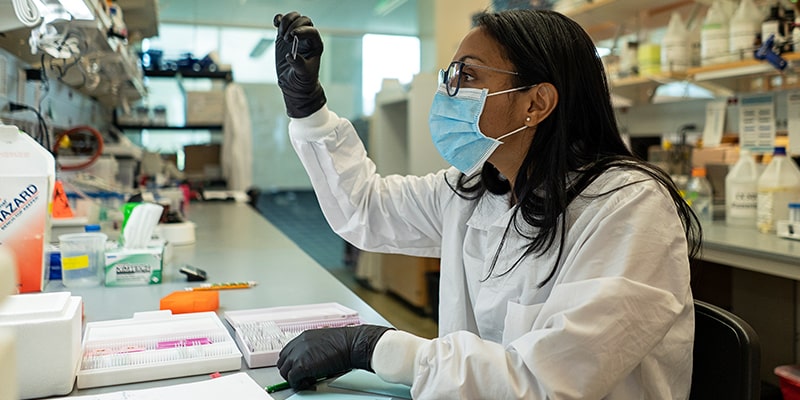
For example, Dr. Ueno highlights that native Hawaiians, Pacific Islanders, and Filipino communities experience significantly higher rates of cancer-related deaths compared with white or Far East Asian populations.
Therefore, there is a real need to provide research and healthcare that are deeply attuned to the cultural practices and ethnic biology of the individuals affected by cancer.
“One of the most important things is understanding the context and background of the people. Because simply sending someone like me and saying, ‘I’m the director,’ doesn’t always resonate,” Dr. Ueno explains.
To create that connection, instead of a top-down approach, the center employs community field officers who embed themselves within local gatherings, like church or community gatherings.
These officers learn from and educate community leaders, recognizing that messages are often best received when delivered by trusted, relatable figures within the community itself. By doing so, the center creates a buy-in effect from within the community.
Ensuring High Quality within Advanced Research
Thanks to its cultural considerations, the University of Hawai‘i Cancer Center stands at the forefront of significant research and development.
A key area of focus is leveraging its large, world renowned Multiethnic Cohort clinical database and sample repository to understand disease incidence in of various racial and ethnic groups. Launched in 1993, the MEC study is the Study is the most ethnically diverse epidemiologic study in the world that investigates the roles of lifestyle, diet and genetics in cancer and other chronic diseases.
This unique resource has produced numerous landmark scientific findings. It also has enabled the adjustment and adaptation of screening guidelines to better suit the diverse population. Dr. Ueno expands on this, saying, “We know conditions like liver cancer or hepatoma are very common in this region. But, we’ve been conducting novel combination immunotherapies related to aggressive cancers like liver cancer, breast cancer, and lung cancer. Those are things we do quite well.”
Of course, maintaining the highest standards of quality during research and development is paramount, so the center’s National Cancer Institute designation serves as a rigorous benchmark of accountability.
As one of only 73 such centers in the nation, the University of Hawaiʻi Cancer Center ranks in the top 4% of cancer centers nationwide. It must regularly secure a Cancer Center Support Grant (CCSG), a demanding process that involves a comprehensive review of its overall strategy, program progress, publications, and impact.
This includes detailed strategic write-ups for each program, clearly defined key performance indicators, and regular meetings to monitor progress and make necessary adjustments.
Going beyond the five-year CCSG review cycle, this continuous self-evaluation ensures consistent improvement in the center’s broader mission of saving lives.
The focus is on demonstrating a sustained downward trend in cancer mortality, achieved through enhanced screening, improved treatment outcomes, and encouraging patients to adopt healthier lifestyle choices—a comprehensive, holistic view of care.
“We want to save lives in Hawaii and the Pacific. So, we need to continue to show that cancer mortality is going down. Now, these outcomes of improved survival don’t happen in one year; they must be more of a trend,” Dr. Ueno clarifies.
And as proof of its excellence in this area, the UH Cancer Center recently achieved its best score in history during its latest NCI designation renewal process, a direct result of its meticulous internal monitoring, and was categorized as an “outstanding” cancer center.
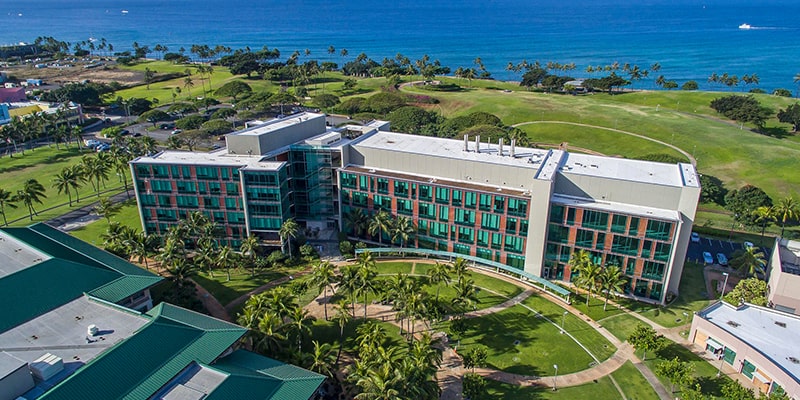
Central to the center’s success and impact is its extensive network of partnerships, primarily with Hawaii’s leading healthcare systems.
The Hawaiʻi Cancer Consortium comprises key players, including Hawaiʻi Pacific Health, Queen’s Health System, Kuakini Medical Center, Adventist/Castle Health System, Castle Medical Center, and the Hilo Benioff Medical Center, as well as the Hawai‘i Medical Service Association and the university’s medical school, the John A. Burns School of Medicine.
“It’s a mutual kind of relationship. Early-phase clinical trials, such as new types of innovative trials, are handled on our side, while later-phase clinical studies are handled by the health system. But we work with all the health systems so that we can hold conferences or talk about strategy,” Dr. Ueno states.
This collaborative model embeds the center’s physicians within these systems and assigns healthcare system physicians to the center, fostering a cooperative environment where expertise is shared.
A significant development in recent years has been the inclusion of Hilo Benioff Medical Center on Hawai‘i Island as a consortium member, marking the first time a center outside of Oʻahu has been formally integrated.
This is an expansion that Dr. Ueno characterizes as crucial for reaching the nearly 400,000 residents living on Hawai‘i’s neighbor islands, helping to ensure equitable access to advanced cancer care across the state.
“The reason that we’re all doing this is to make sure everybody has a chance. So, regardless of which island you live on, you’ll get the best care; that’s the ultimate goal,” Dr. Ueno says.
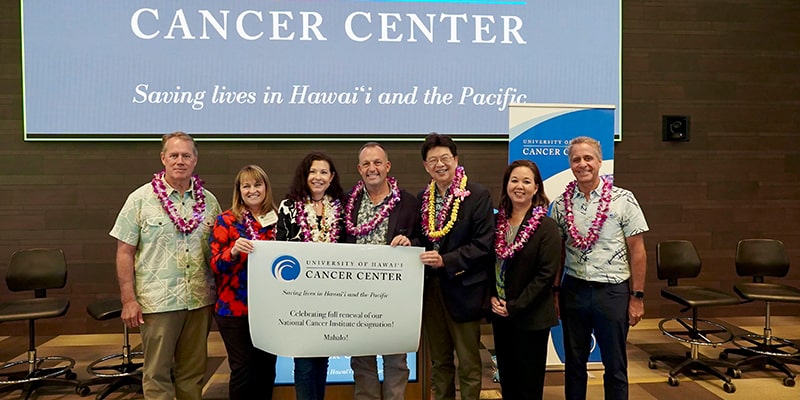
A Vision for Equitable and Inspiring Care
Beyond direct clinical intervention, the center is heavily investing in education and fostering a strong sense of community belonging.
Key initiatives underway that reflect this vision include the launch of Ka ʻUmeke Lama, an academic oncology program designed to address the oncologist shortage in Hawaii, which will include a new medical oncology fellowship program starting in July 2027.
Furthermore, the new Susan C. Hirano Cancer CARE Community patient-empowerment initiative aims to provide comprehensive social-emotional support for patients, caregivers and families, ensuring they are aware of all available opportunities.
The center is also actively working to create a digital network connecting other islands to its medical oncology specialists and statewide professional education.
Looking to the future, the center is establishing a new facility, the Hoʻōla Early Phase Clinical Research Center, on its campus, set to open in the first quarter of next year.
Ho‘ōla will be the first of its kind in Hawai‘i. It will specialize in Phase 1 clinical trials treatments for cancer patients. This center will allow patients in Hawai‘i to participate in the latest cutting-edge cancer treatments without needing to travel to the U.S. continent.
Since Dr. Ueno’s arrival about two and a half years ago, the focus has been on building this influential model, ensuring that every patient receives the best possible care by guiding them to the right resources and the latest advancements.
The long-term vision for the University of Hawaiʻi Cancer Center is profoundly personal and universally ambitious: to ensure that every individual in Hawaiʻi and the Pacific receives the highest quality of cancer care, regardless of their geographic location or socioeconomic status.
Dr. Ueno, a two-time cancer survivor himself, uniquely imbues this vision with a deep understanding of the patient experience.
“The staff at the National Cancer Institute once told me that we are the only NCI-designated cancer center led by a two-time cancer survivor. So, his perspective as a clinician and researcher, as well as someone who has been through treatment himself, has really made a difference in all the things that we’re trying to pursue,” says Director of Communications Esme M. Infante.
Dr. Ueno’s leadership has pivoted the center to prioritize patient care and equitable access across all underserved populations, marking an unprecedented period of growth and change.
The goal is to instill confidence within the community that exceptional care is available locally, thereby reducing the need for patients to travel to the U.S. continent for treatment unless absolutely necessary.
Dr. Ueno’s journey, directly impacted by research-driven care and his involvement in treatment development, profoundly informs his conviction.
As he puts it, “Research does matter,” and these collective efforts ensure that countless residents will benefit from the groundbreaking work being done.
AT A GLANCE
Who: The University of Hawai‘i Cancer Center
What: One of only 73 National Cancer Institute-designated cancer centers in the United States and the only one serving Hawai‘i and the U.S.-Affiliated Pacific Islands.
Where: Located in Honolulu, the center operates within the University of Hawai‘i System and partners across the Pacific to reach underserved communities.
Website: www.uhcancercenter.org
